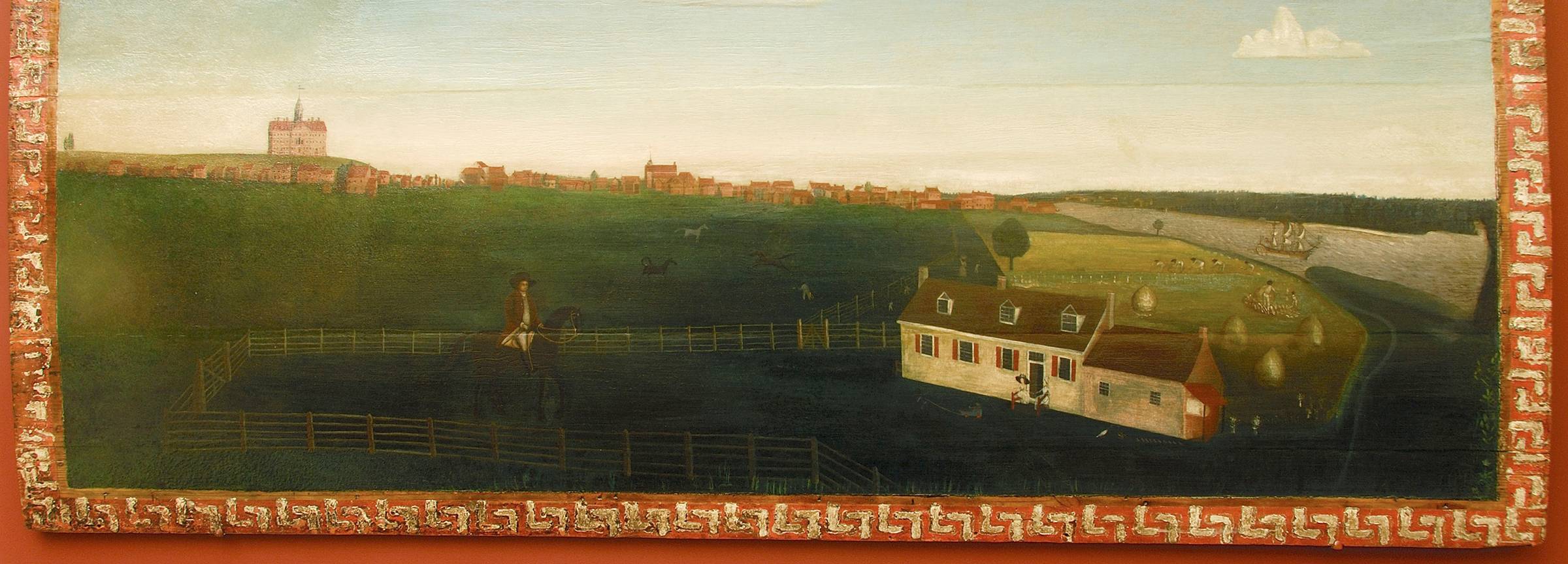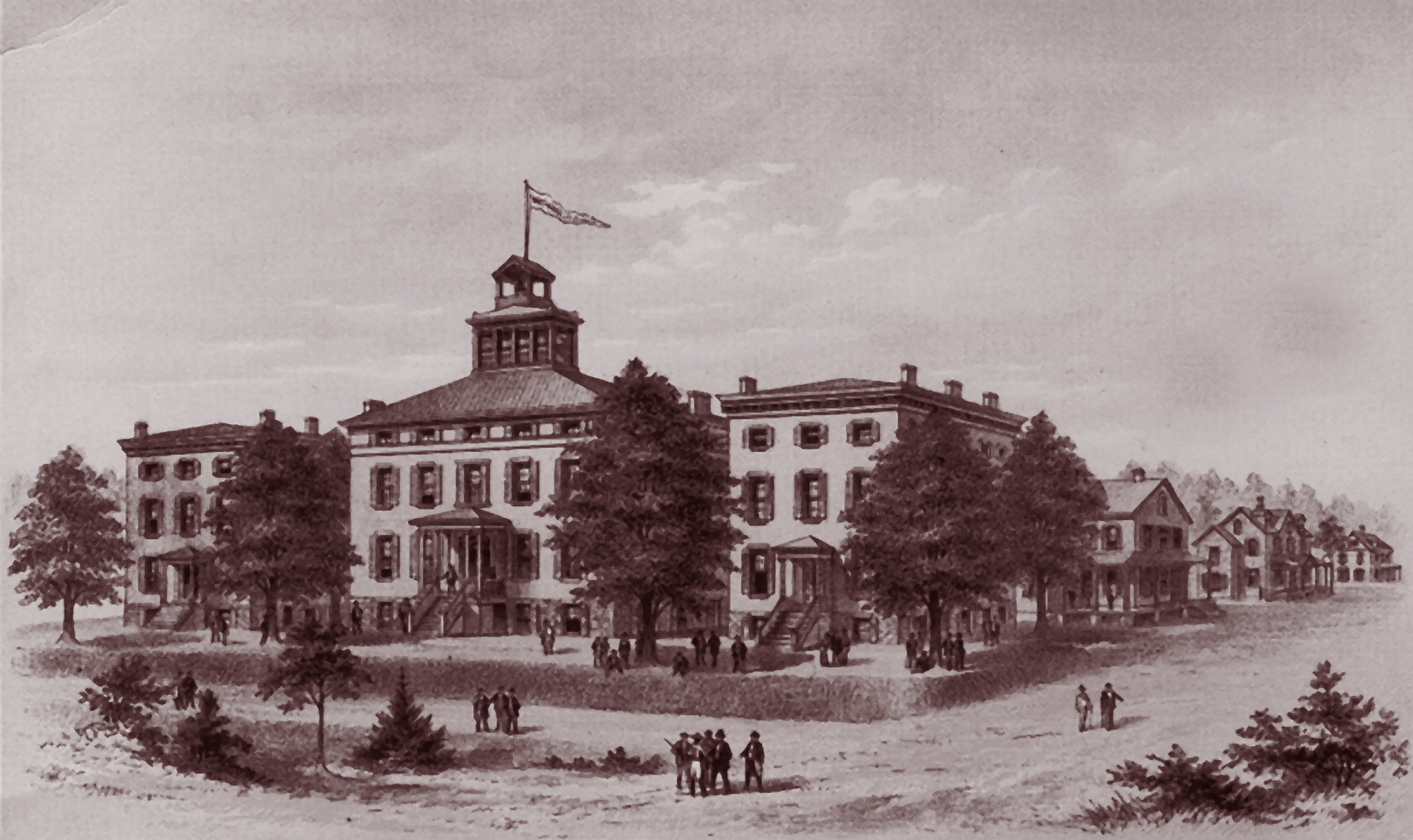

The Washington College History Project
We are a group of nearly three dozen faculty, staff, and students committed to engaging contemporary audiences in conversations about our past as a way to affect positive change in our present campus culture. It is our fervent hope that, through this work, we can abolish any deep-seated prejudices, changing hearts and minds by sharing our history—and the omissions of history—that illuminate the imperative for all of us to treat our fellow humans with dignity and respect. We stand with people of color who have been marginalized and victimized throughout our nation’s history, from past eras to the present day. The Washington College History Project takes as its charge the honest and forthright examination of the institution’s troubling historical legacy of racism and the urgent need to acknowledge and reconcile this history in order to dismantle racial injustices in the present moment.
In 2019, concerned students drew attention to a late 18th-century painting of a Chestertown plantation, ‘A View of White House Farm", hanging outside the President's Office. Displaying this romanticized depiction of white supremacy and enslavement, with Washington College sitting peacefully on a hill in the distance, in one of the College’s most important spaces, students said, showed how far we are from an honest understanding of our past. The call to move the painting led to its removal and temporary storage in the College archives.
This significant change was one of many student-led actions in 2019 and 2020 that have helped lead to the formation of the Washington College History Group—and, beyond it, to the College’s commitment to uncover and acknowledge its real past, and to work today to build a truly inclusive community.
The Washington College History Project, initiated in the Summer of 2020 by the President of Washington College, has a three-part mission:
- To illuminate George Washington's and Washington College's historical connection to enslavement and race;
- To acknowledge this history through public statements and symbolic actions;
- And to work for change on our campus and in our campus culture in response to this historical legacy.
What We Intend to Accomplish
This group.is tasked with bringing to light George Washington's and Washington College's historical connection to enslavement and race. Faculty in the Department of History and staff in the Starr Center for the Study of the American Experience have been exploring those connections for the past several years.
This group is tasked with framing our messaging and communicating the work of the "Find" and the "Reconcile" groups. Trust-Griswold Director of the Starr Center for the Study of the American Experience.
This group is tasked with developing and recommending actionable items that will help begin the healing process as we work for change on our campus and in our campus culture.
A Call for Social Justice
Not since the March on Washington 57 years ago have the American people rallied together with such frustration and urgency to demand racial justice. Unprovoked violence and brutality against people of color have set off a series of protests. Given social and political polarizations fragmenting communities across the nation, Washington College has had its own share of racial strife. We call for change. And it starts here, with the Washington College History Project.
The racial inequities that Civil Rights activists sought to address in 1963 have their roots in the legacy of slavery and racial oppression upon which our nation was built. As the first college chartered in the new nation, Washington College was complicit in that system of racism. It is well past time to acknowledge that hurtful history and to begin to make amends.

The Asterisk Initiative
The Asterisk Initiative, sponsored by the Richard E. Holstein ’68 Program n Ethics, explores the history of Washington College, reconciling our past with the present realities of racial inequities. For too long, Washington College has told just one side of its story, exalting our founding fathers and silencing their complicity in institutional racism. The Asterisk Initiative seeks to rectify this omission as we move towards building a truly inclusive community.
Through this ongoing initiative, we aim to celebrate both the strength and the struggle, to acknowledge both the trauma and the endurance, past and present, of the people who have worked to make our community richer in its plurality and complexity.
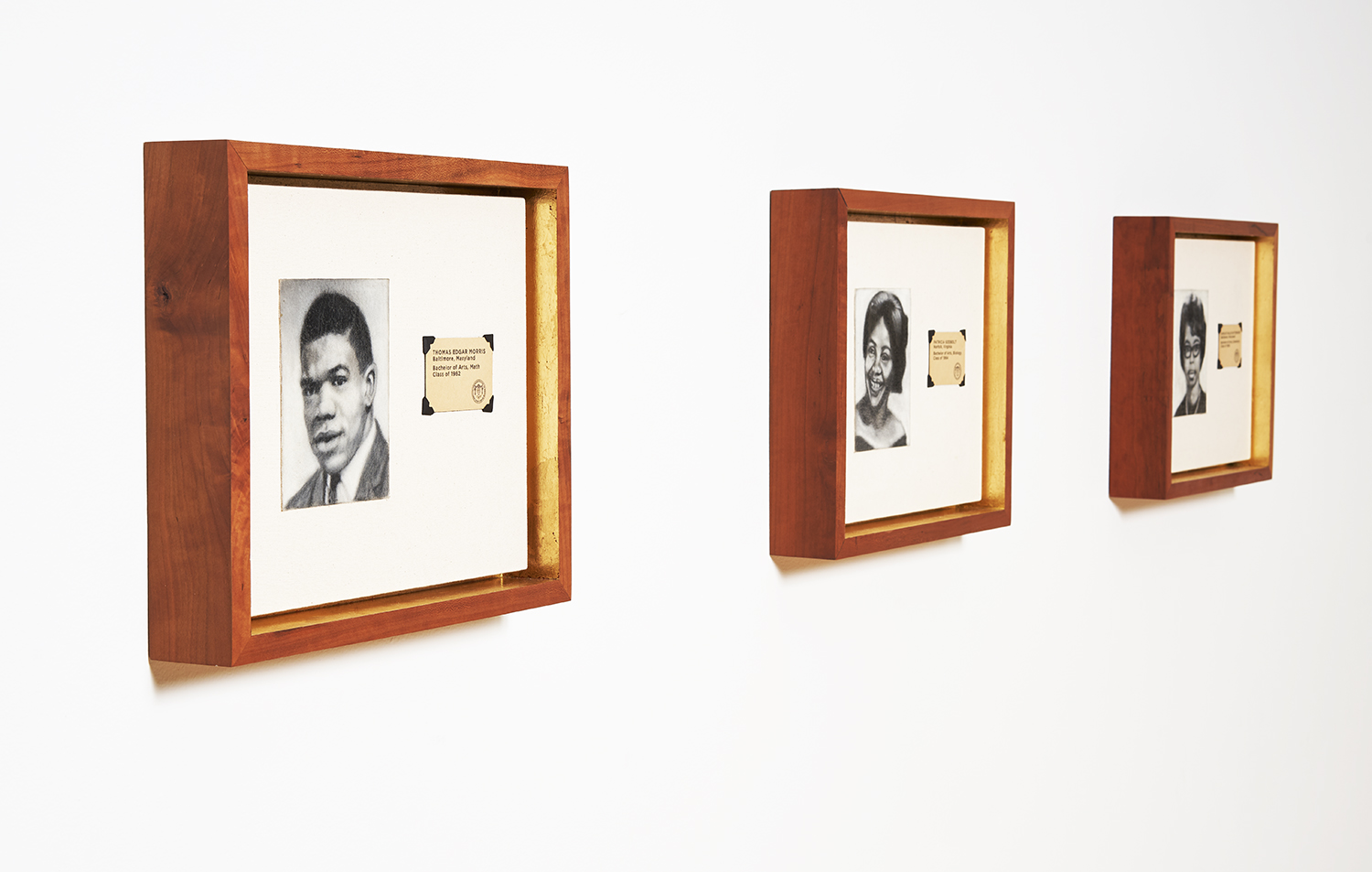
On the Black History of Kent County and Washington College
This collection of artwork is the culmination of a two-year project by history based artist Jason Patterson that began during his time as the Frederick Douglass visiting fellow at Washington College’s Starr Center for the Study of the American Experience. This project addresses the experiences of African American lives, starting in post-colonial Kent County, Maryland and at Washington College, the first college established in the United States after the new nation's founding.
Digital Exhibition in Kohl Gallery
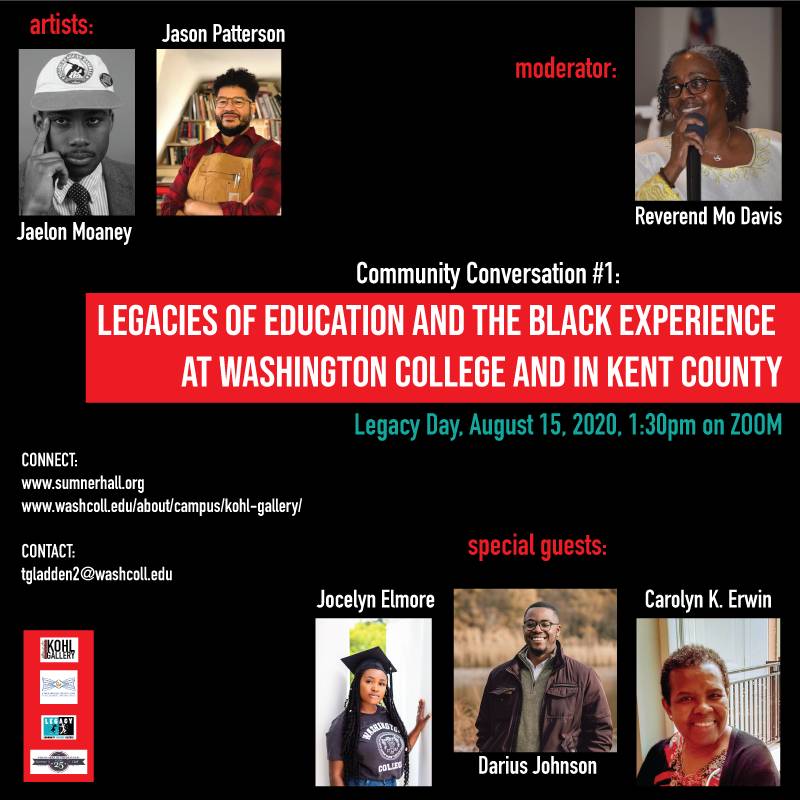
Legacies of Education and the Black Experience at Washington College and in Kent County
Legacy Day celebrates the rich heritage of African Americans in Kent County. In the midst of the pandemic, organizers hosted a virtual celebration on Aug. 15—a highlight of which was a community conversation organized by the College's Kohl Gallery and supported by a Chesapeake Heartland Staff/Faculty Fellowship. "Legacies of Education and the Black Experience at Washington College and Kent County" was offered in conjunction with artist Jason Patterson's upcoming October exhibition: "On the Black History of Washington College and Kent County."
Moderated by Reverend Monique Davis, Pastor of Mt. Olive A.M.E. Church in Worton, Maryland, the panel included local artist Jason Patterson and collaborator Jaelon Moaney, as well as special guests Jocelyn Elmore, Darius Johnson, and Carolyn K. Erwin—all graduates of Washington College. Patterson is the Starr Center's Frederick Douglass Visiting Fellow,
Legacies of Education and the Black Experience
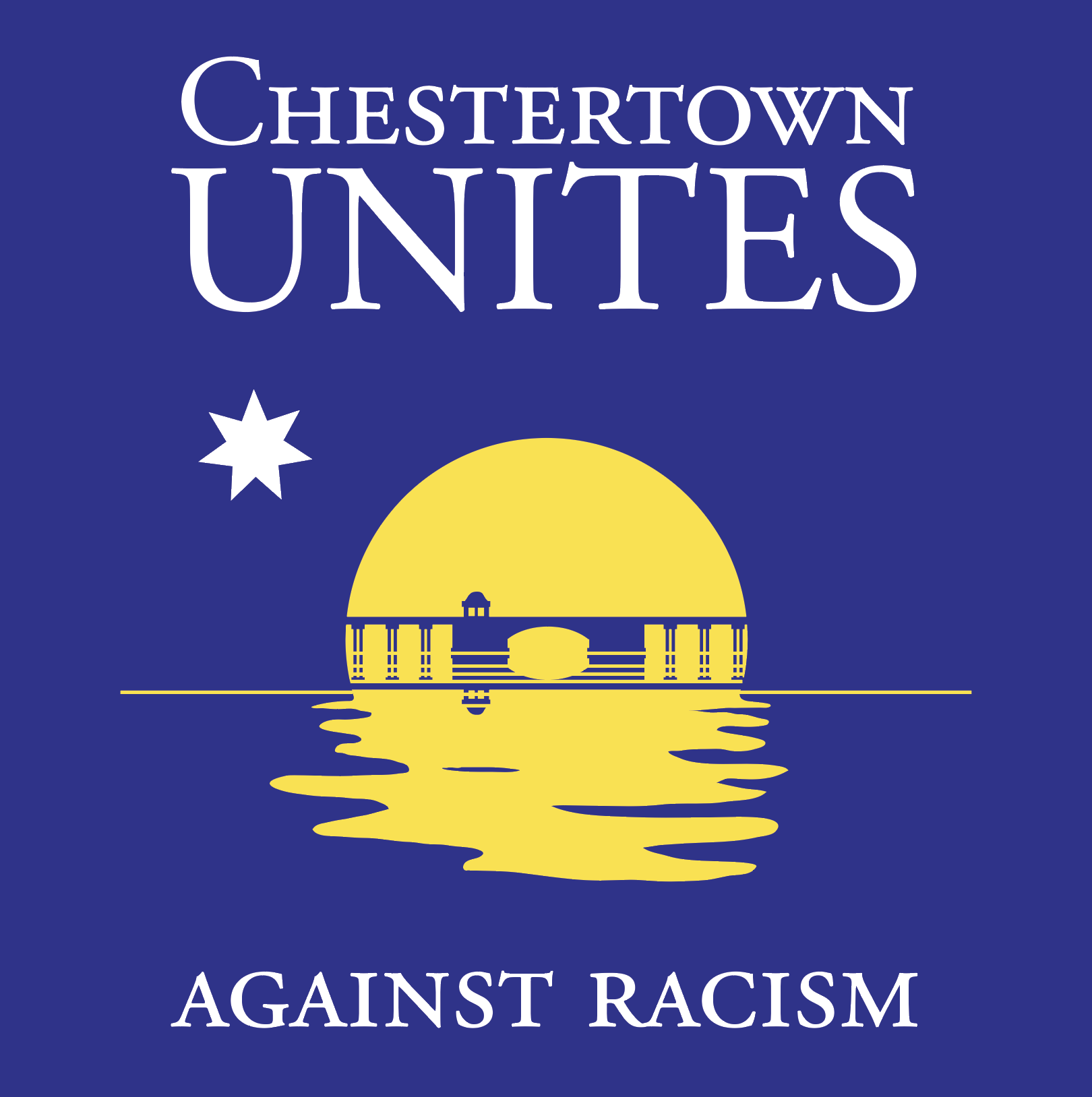
Chestertown Unites Against Racism
The Town of Chestertown has committed to a 16-month action plan designed to educate the community about its history pertaining to race relations, to pursue legislative reforms that address systemic racism, and to promote unity, equality, and inclusivity among all residents. With representation from Washington College, the first meeting of the Chestertown Equity Advisory Committee was held in December 2020, and the Chestertown Unites Against Racism website—including the comprehensive plan focused on education, legislation, and unification—was launched in January 2021.
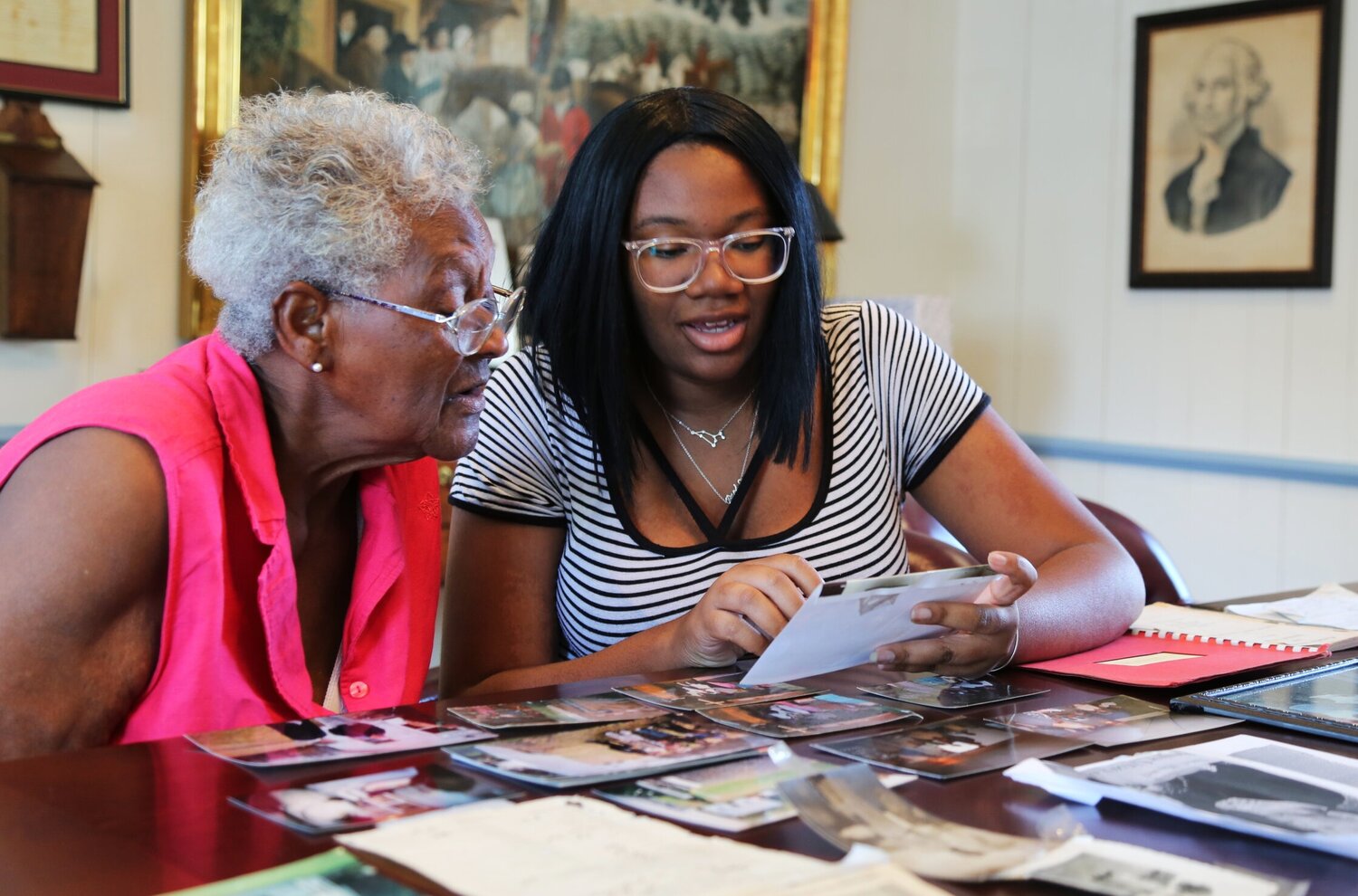
Chesapeake Heartland; An African American Humanities Project
Chesapeake Heartland is a new collaboration between the National Museum of African American History and Culture, Washington College, and a diverse array of local organizations including Sumner Hall, Kent Cultural Alliance, and Kent County Public Library. Its mission is to preserve, digitize, interpret, and make accessible materials related to African American history and culture in Kent County, Maryland, and beyond.
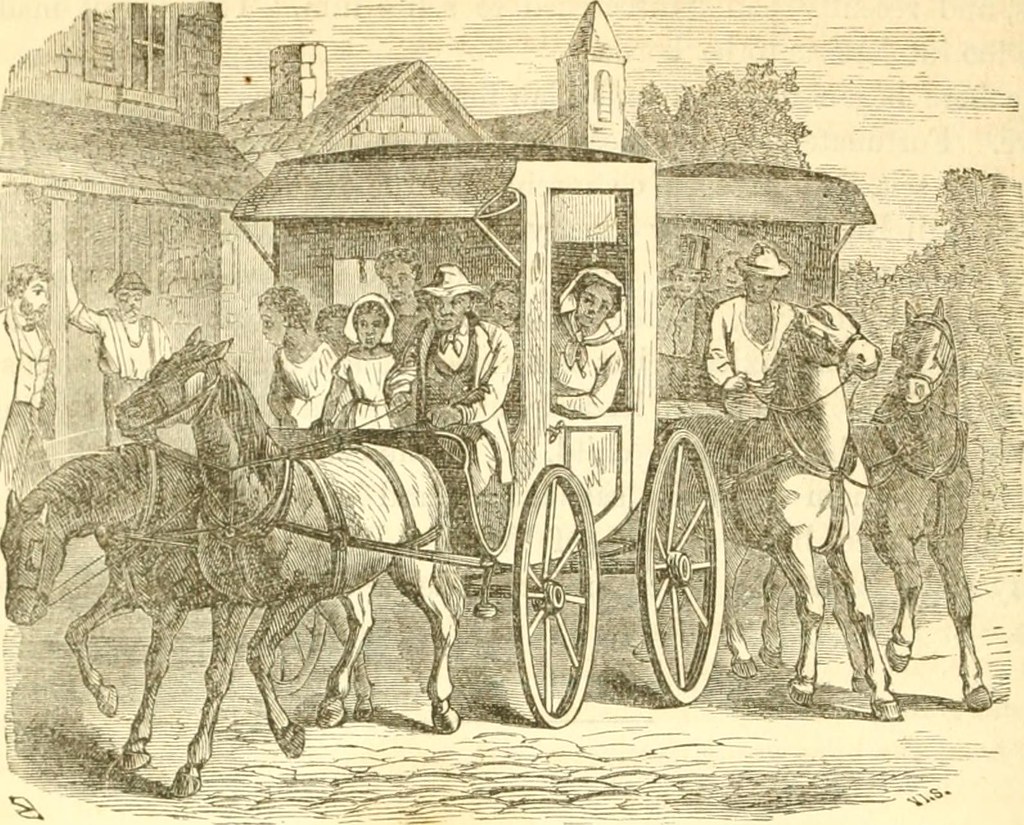
Slavery and Freedom at Washington College
Since the Spring of 2018, Professor of History Carol Wilson has led teams of undergraduates investigating Washington College's connection to enslavement, sharing the stories of slaveholders associated with the institution as well as those of enslaved people and free blacks working on campus.
